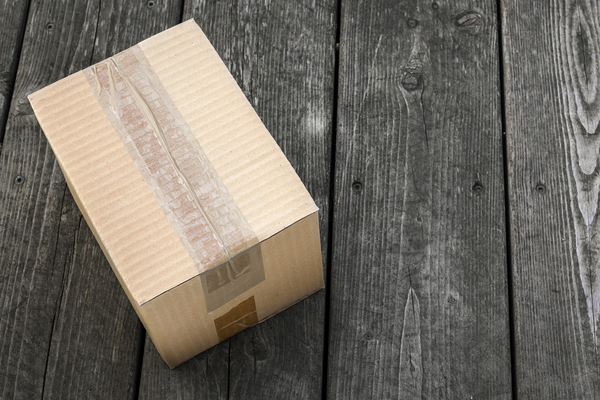 Levi Strauss & Co. has designated different fits of jeans with its trademarked numbers (501s, 514s, etc.) for years. Harkening back to Levi’s frontier roots, the numbers invoke the idea that the buyer is wearing the same quality product that has been worn by working-class heroes of the past century. Buyers select "501" from a drop down menu on a web store the same way their great-great grandpa may have penciled “501” into a Sears & Roebuck Catalog. Levi’s jeans speak for themselves: no need for a fancy name or sales pitch when the number will do just fine. Plus, who has time to remember if they wear “low loose boot” or “slim straight”? Levi’s no-nonsense catalog numbers, hand-stamped above the back pocket imply that the jeans are delivered to you honestly, from real people. Lately, we’ve noticed a number of new brands trying different ways of capturing a similar authenticity story by incorporating numbers into their branding.
Levi Strauss & Co. has designated different fits of jeans with its trademarked numbers (501s, 514s, etc.) for years. Harkening back to Levi’s frontier roots, the numbers invoke the idea that the buyer is wearing the same quality product that has been worn by working-class heroes of the past century. Buyers select "501" from a drop down menu on a web store the same way their great-great grandpa may have penciled “501” into a Sears & Roebuck Catalog. Levi’s jeans speak for themselves: no need for a fancy name or sales pitch when the number will do just fine. Plus, who has time to remember if they wear “low loose boot” or “slim straight”? Levi’s no-nonsense catalog numbers, hand-stamped above the back pocket imply that the jeans are delivered to you honestly, from real people. Lately, we’ve noticed a number of new brands trying different ways of capturing a similar authenticity story by incorporating numbers into their branding.

The "Good Old-Fashioned Way"
Authentically conveying a sense of traditional craftsmanship can be a challenge for a brand that’s just getting started. Lately we’ve noticed a number of new brands that reinforce their old-world techniques and quality by using vintage typography and numerical naming conventions. John & John Crisps from the UK and Cielito Coffee from Mexico are two particularly well-executed examples. In both cases, each variety of the product is distinguished with a bold color and even bolder number, clearly organizing the different varieties. This barebones yet nostalgic look gives the customer a sense that the manufacturer is focused on making a quality product the old-fashioned way and isn’t trying to trick you with fancy marketing-speak.

The "Limited Edition"
Some in the craft spirits category take the “numbering” concept one step further by applying a unique number to every bottle they produce. Industry City Distillery in Brooklyn combines scientific technology with traditional techniques to produce a unique high-end product. Each variety and bottle is methodically numbered and cataloged on the label. The packaging reflects the scientific precision essential to Industry City's brand story. Similarly, Few Spirits Chicago hand-numbers each bottle, marking it with pen and creating an "edition" of sorts. The small-batch production becomes apparent immediately. The end user connects directly to the producer. The distiller pays specific attention to each and every bottle, including the one you’re about to drink.

The "Love Potion #9"
Sometimes simply using a single number as part of the product name can evoke a sense of quality. We've seen a number of breweries, in particular, that do a great job using this technique: Shiner’s spring ale this year is called “FM 966 Farmhouse Ale,” Boulevard Brewing Co. makes “Love Child No. 2” and “Tank 7 Farmhouse Ale,” and Magic Hat’s flagship beer is simply called “#9.” These breweries haven’t completely committed to a number system for their entire portfolio, yet there’s still a sense that the consumer is getting a sneak peek at a special batch. The numbers not only beg trial by giving the beer a sense of mystery (What’s behind door #3?) they give the user a particular confidence in the origin of the product. Not only are they drinking craft beer from a small brewery in a specific city, they can trace the beer to a specific (theoretical) batch handpicked by the brewer.
What all these examples have in common is a sense of simplicity and transparency that retains the brand’s personality. Even if using numbers isn't the perfect option to tell your brand's story, you can't go wrong with branding and packaging that showcase what's unique about your product.







